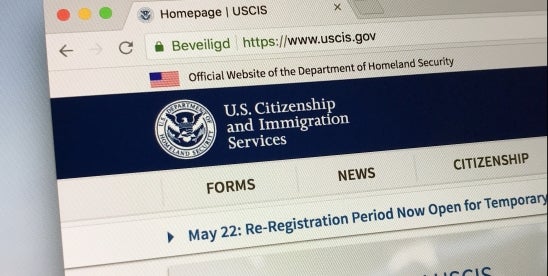Starting from December 2, 2024, the U.S. Citizenship and Immigration Services (USCIS) mandated the concurrent filing of Form I-693, Report of Immigration Medical Examination and Vaccination Record, along with all adjustment of status applications. This is a major shift from the previous policy, which allowed applicants to file their green card applications without Form I-693.
Form I-693 documents an immigrant’s health-related admissibility to the United States. In light of the new policy, applicants must start planning in advance to ensure they can timely file their applications. The form must be completed by a USCIS-designated civil surgeon verifying that the applicant is not subject to health-related grounds of inadmissibility.
Starting from November 1, 2023, any properly completed and signed Form I-693 does not expire and can be used indefinitely as evidence. Still, the USCIS might request more evidence or an updated Form I-693 if the officer suspects a change in the applicant’s health condition.
This change in policy streamlines the immigration process and reduces the amount of additional evidence requested before adjudicating a Form I-485. It certainly adds components required at the time of AOS filing, hence, it’s crucial to prepare in advance.
In other immigration news, USCIS announced that certain Afghan nationals who arrived in the United States during Operation Allies Welcome (OAW) now have their immigration medical examination documentation valid indefinitely when they apply to adjust their status to becoming a lawful permanent resident.
Furthermore, USCIS clarified that a naturalization applicant’s burden to demonstrate they have been lawfully admitted for permanent residence applies only to their initial admission or adjustment to LPR status, regardless of subsequent re-entries to the U.S.
In a separate update from other countries, Australia announced a new visa scheme, Mobility Arrangement for Talented Early-professionals Scheme (MATES), for graduates and early career professionals from India’s top universities starting from December 2024.
Also, Kazakhstan has announced updated visa regulations providing new visa types aim at fostering international collaboration, attracting skilled professionals, and enhancing the nation as a tourist destination.
Meanwhile, Finland plans a processing pause on work-based permits from January 1 to January 8, 2025. The Finnish Immigration Service will also take over the entire process of work-based residence permits starting January 1, 2025, aiming to enhance the customer experience and streamline the process.
These updates constitute a range of measures that are being taken worldwide to streamline immigration processes, attract skilled professionals, and improve the investment climate in various countries.
Article 1: Good Moral Character for U.S. Citizenship: What it Means
The term “good moral character” is a critical component of eligibility for U.S. citizenship applications. This standard, assessed by U.S. Citizenship and Immigration Services (USCIS), is maintained over a period of five years preceding the application or three years if the applicant is married to a U.S. citizen.
Good moral character goes beyond obeying the law and includes adherence to overall societal ethics and values. It also involves remaining free of serious crimes, fulfilling fiscal obligations, honesty in the immigration process, and paying taxes. Dishonesty during the immigration process is viewed unfavorably, even if it doesn’t result in a conviction.
Certain offenses permanently disqualify a person from establishing good moral character. These include murder, drug trafficking, money laundering exceeding $10,000, passport fraud, perjury, and violent or theft crimes carrying more than a year’s imprisonment. There are also temporary, conditional bars to establishing good moral character. These include false testimony for immigration benefits, multiple DUI convictions, extramarital affairs destroying marriages, refusal to support dependents, multiple offenses with a combined sentence of 5 years or more, and unlawful acts, even devoid of charges or convictions.
A misdemeanor offense doesn’t automatically disqualify an individual, yet it complicates the process, necessitating legal analysis of the charge. To prove good moral character, applicants need to provide solid evidence including tax returns, employment records, community service records, affidavits from members of the community, and criminal background checks.
Article 2: Despite Audit, Doctors With Checkered Records Can Still Decide Fate of Green Card Seekers
A government review found that invalid physicians, previously disciplined by state medical boards for various misconducts, were authorized to conduct screenings for green card applicants. The U.S. Citizenship and Immigration Services (USCIS) often failed to adher to their standards and vet physicians accordingly. To date, numerous doctors with records of professional misconduct remain part of the list, despite the USCIS’s promise to rectify it following an audit last year. USCIS has missed several deadlines to make improvements and advances swiftly remain to be seen.
Doctors participating in this federal program only need an active medical license to qualify. These physicians perform important roles, screening green card applicants for communicable diseases and disorders associated with harmful behavior. However, recent changes in USCIS policies have made it difficult to correct mistakes in green card applications, increasingly putting applicants at risk. Errors by USCIS-designated doctors can thwart a petition for permanent residency substantially.
The entire green card application process is expensive and lengthy. The list of conditions for inadmissibility is controversial and subject to change throughout history. The application process is only becoming more challenging over time, and policymakers must look into addressing the shortcomings of the current system.
Sources:
 USCIS Mandates Concurrent Filing of Form I-693 with Adjustment of Status Applications
USCIS Mandates Concurrent Filing of Form I-693 with Adjustment of Status Applications USCIS will require medical and vaccination reports to be submitted with the green card application
USCIS will require medical and vaccination reports to be submitted with the green card application Global immigration news round-up
Global immigration news round-up Good Moral Character for U.S. Citizenship: What it Means
Good Moral Character for U.S. Citizenship: What it Means Despite Audit, Doctors With Checkered Records Can Still Decide Fate of Green Card Seekers
Despite Audit, Doctors With Checkered Records Can Still Decide Fate of Green Card Seekers





Leave a Reply